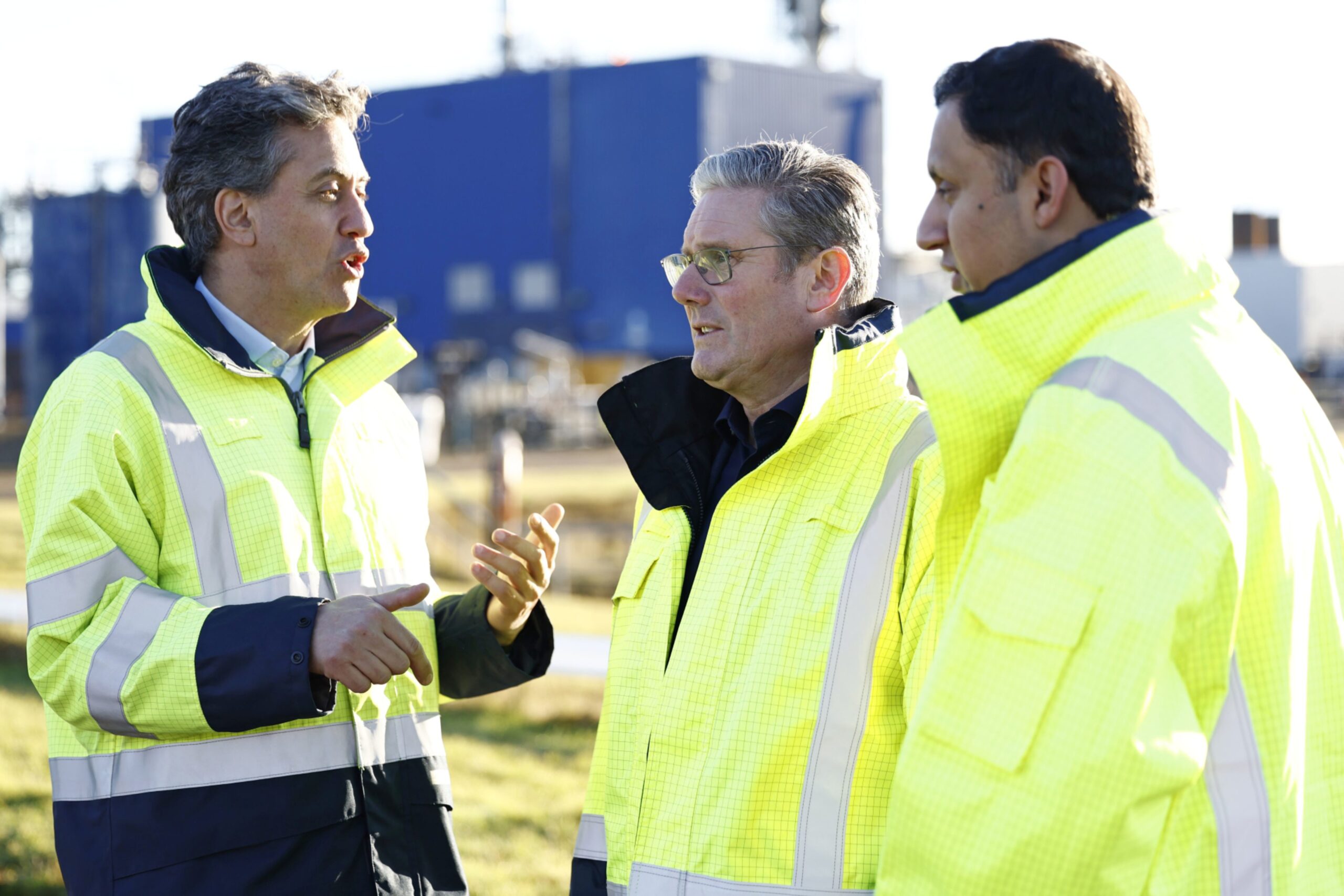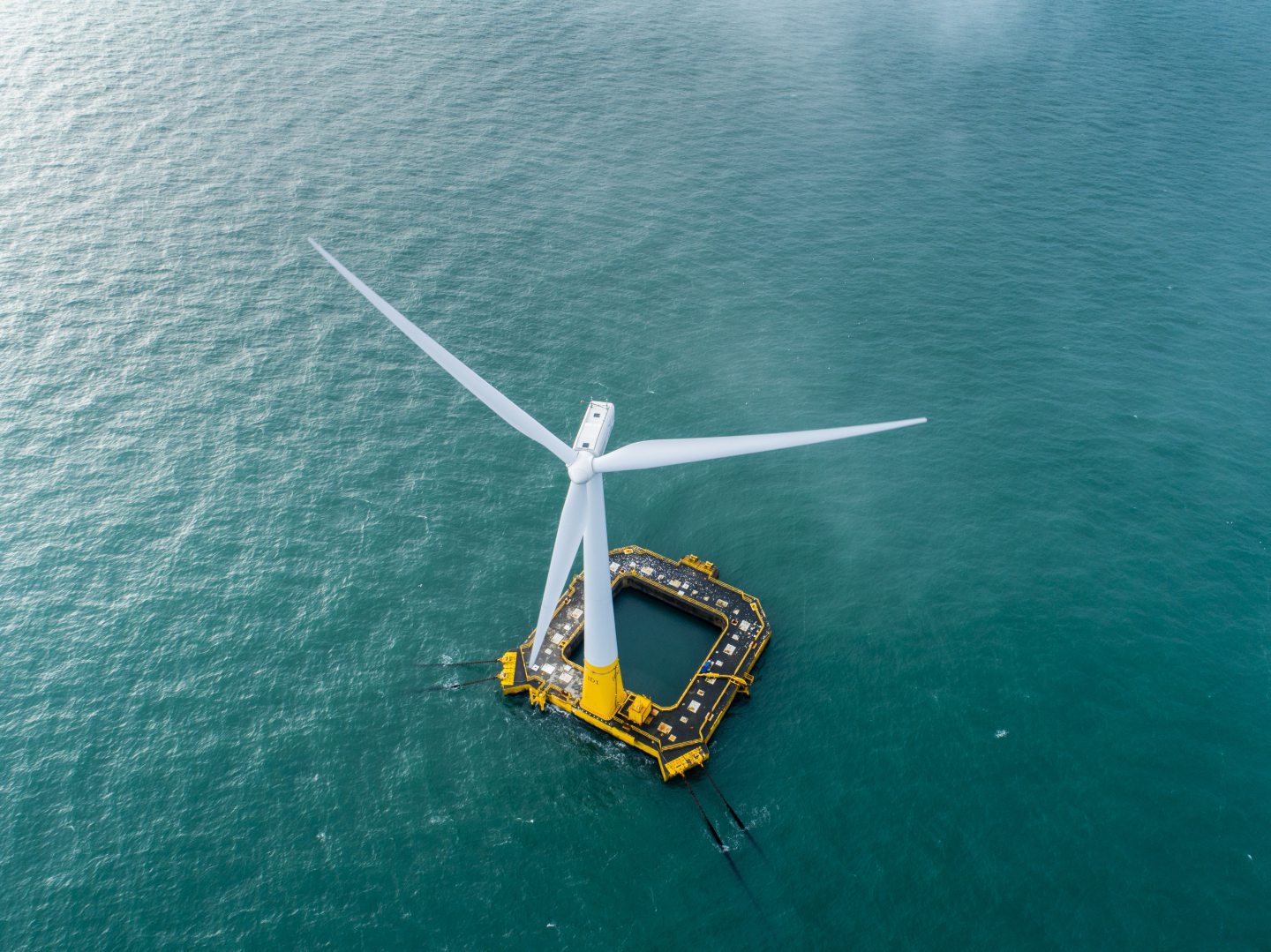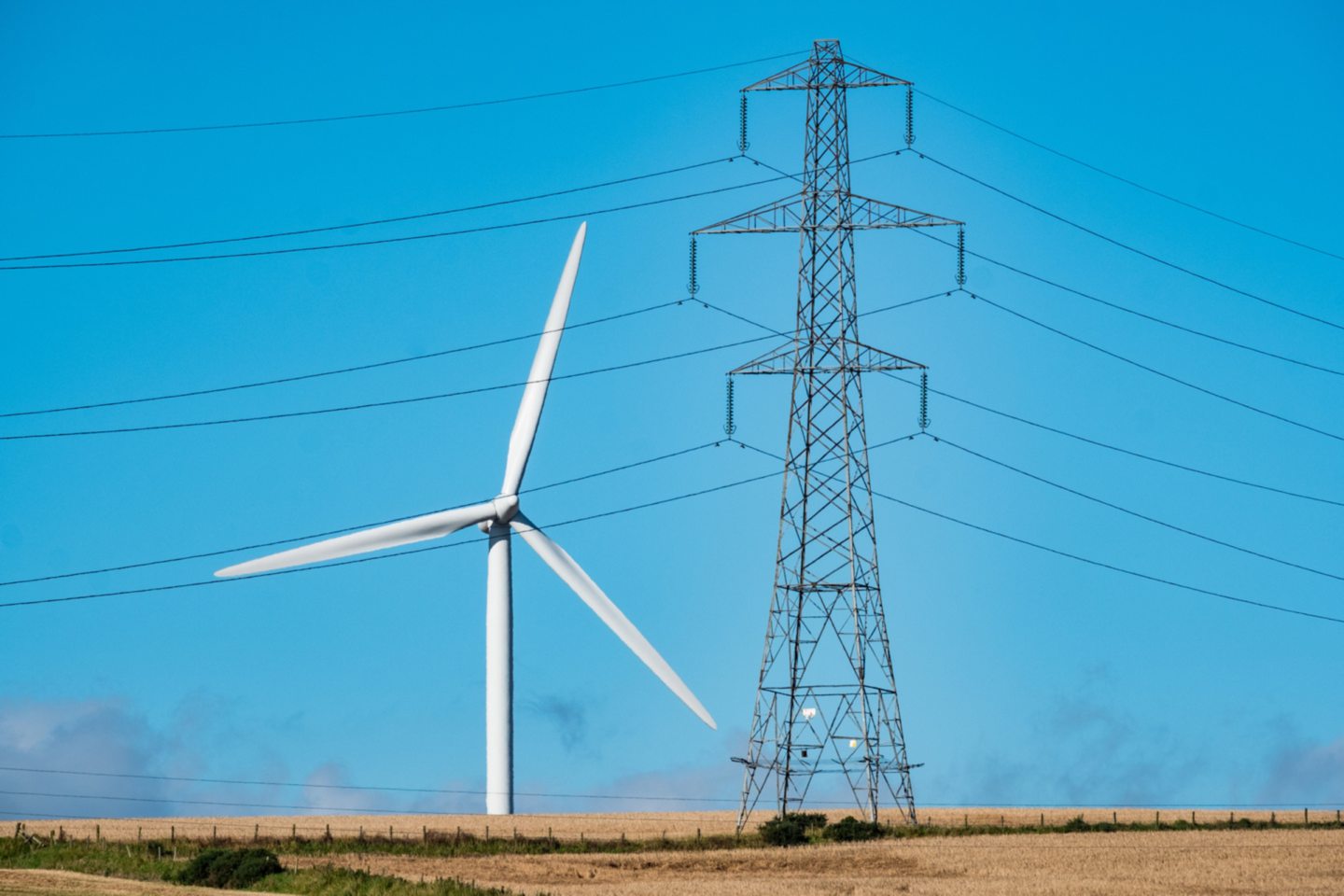As the UK nears the end of an election campaign where energy policy has featured prominently, experts say the debate has been heavy on rhetoric but light on detail.
Russia’s invasion of Ukraine and the world’s changing climate have placed energy policy high on the list of voter concerns in the UK.
But the election comes amidst rising political backlash against climate policies, particularly those surrounding emissions reduction and the costs of net zero.
Subsequently, the future of the North Sea oil and gas sector has played a prominent role in campaign messaging, particularly in Scotland.
Alongside the political parties, the energy sector, trade unions and environmental groups have all been keen to put forward their views on the UK energy transition.
But what do energy experts make of the policies put forward during this campaign, and the general tone of the debate so far?
Energy Voice spoke to leading academics at UK universities for their take on the key issues in the energy debate, and the challenges that lie ahead for the next government.
North Sea oil and gas
Cambridge University Energy Policy Research Group assistant director Professor David Reiner said North Sea oil and gas is one of the few energy related issues to “cut through” in this election campaign.
But the debate around the issue has been largely “reductionist”, he said.
“The problem isn’t the provenance, the problem is that we continue to use oil and gas, so my concern is things like the slowing of the electric vehicle deployment rates which would allow us to transition away from oil and gas wherever it’s coming from,” he said.
“The idea that we should unilaterally stop oil and gas production or forego further exploration in the UK is, particularly on existing production, nonsensical.”
North Sea a ‘wedge issue’
London School of Economics Grantham Research Institute policy analyst Leo Mercer said the Conservative party has played a key role in raising the prominence of the North Sea oil and gas sector in the election debate.
He pointed to Conservative efforts to use energy security partly as a wedge issue against Labour, and partly as part of efforts to see of the electoral threat from Reform.
“This is why [the Conservatives] are advocating continued licensing in the North Sea,” he said.
“No serious economist worth their salt believes that future licensing in the North Sea will boost domestic energy security or lower prices, given that the fields are in production decline and natural gas is a global commodity with pricing set at the margins as an international commodity.
“What we need to see from both parties are responsible statements which recognise the continued role of North Sea oil and gas in the UK energy mix, but that this is a declining role which necessitates labour market transition plans to ensure a just transition for oil and gas workers in North East England and Scotland.”
Durham University Energy Institute executive director Professor Simone Abram said the debate around the North Sea needs to focus on transition efforts.
“Unfortunately, the UK will continue to rely on gas supplies for some time, but it is a mistake to think that UK production necessarily supplies UK needs,” she said.
“The answer is to switch more rapidly to non-fossil energy, not to think we can keep plugging the gap with oil and gas.”
Energy policy and net zero debate
Overall, the experts Energy Voice spoke to expressed concerns about the lack of real debate concerning energy policy seen in the general election campaign.
Professor Reiner said the manifesto pledges “evidence a degree of optimism and some simplicity in their view of how this might actually all play out”.
“The idea that this will deliver hundreds of thousands of jobs and will come in with lower costs and can be accomplished quicker than expected, such as say the Labour party or Green party’s targets, is really not credible,” he said.
Mr Mercer said Labour and the Conservatives “do not drastically differ” on energy policy.
“Labour is much more optimistic, stressing the opportunities investing in green industries could bring for the UK, the Conservatives are more cautious, warning about the costs and risks to the country of moving too fast,” he said.
He said Labour’s manifesto is “good on rhetoric but light on detail”, particularly on the key election promise of the publicly-owned GB Energy.
Meanwhile, Mr Mercer said the Conservative party’s net zero strategy for the sixth carbon budget is still not legally compliant with the climate change act.
The Tory manifesto lacks any “substantively new policy that will shift the dial on this”, he said.
Professor Abram also pointed to the lack of substantive policy announcements, saying there was not enough detail in the party manifestos to give a proper analysis.
Offshore wind
Speeding up the deployment of offshore wind is also set to be a key challenge for the next UK government.
Plymouth University Interdisciplinary Research Centre for Decarbonisation and Offshore Renewable Energy director Professor Deborah Greaves said reaching 100GW in offshore wind capacity by 2040 remains a “critical milestone”.
Professor Greaves said meeting this target will require increasing the offshore wind installation rate from about 1.3GW currently, to close to 6GW per year.
Alongside investment in ports and reforms to the CfD auction process, she said the next government needs to provide a clear pipeline of seabed leasing and sustained investment in research and innovation.
Professor Greaves also called for an offshore wind strategy specifically focused on new leasing areas set to be offered to floating wind (FLOW) developers in the Celtic Sea.
“It is different from other parts of the UK, a virgin basin with no existing offshore oil and gas or wind farm,” she said.
Professor Greaves said the Celtic Sea is “effectively a greenfield site” for FLOW, with no existing offshore industry unlike areas in Scotland and northeast England.
“This means that ports, infrastructure and supply chain all need to be adapted for FLOW,” she said.
There are also significantly economically deprived areas in Wales and southwest England, providing a “great opportunity” for a positive impact on the region, Professor Greaves said.
Decarbonising heating
The experts largely agreed that decarbonising heating, transport and industrial processes should be top of the agenda for the next UK government.
Mr Mercer said turning around the “sluggish pace” of heat pump rollouts and energy efficiency upgrades for buildings will require a “coherent package of financial incentives” above the current subsidies.
“We need to see a workforce plan to train the technicians and installers in addition to information and advertising campaigns to educate consumers to boost uptake,” he said.
Professor Abram said there needs to be a “step change” in decarbonising heating and transport, and UK energy policy needs to focus on “rapid, real change”.
“The UK needs to decarbonise its energy systems in a way that also reduces energy poverty and all of the vulnerabilities that energy poverty creates,” she said.
“A scale up of investment in heat networks will enable low-cost, low-carbon heating in all but the most remote rural areas.
“The UK has fantastic resources of geothermal and minewater heat and the technology to make use of them, but this needs a rapid scale-up to develop skills, knowledge and experience.”
While larger industrial players are making progress on decarbonisation, smaller businesses are being “left behind” and need more consistent funding for support, Professor Abram said.
Professor Reiner said progress on heat pumps and home energy efficiency were two “glaring holes” in the Conservative government’s record.
“We’re lagging quite badly in terms of even the current government’s expectations,” he said.
“We’re by far the slowest in Europe with regard to heat pumps.”
Planning reform
All the academics Energy Voice spoke to agreed reforming the planning system will be one of the most important challenges for the next UK government.
Professor Reiner said while planning reform is something most parties seem to agree on, “the reality is that our history of doing that has not been a particularly good one”.
Mr Mercer agreed, pointing to the need for progress on solar construction and the “de facto” ban on onshore wind in England and Wales.
He said any party attempting to reform the planning system will need “nerves of steel” to take on likely opposition from “vested interests and landowners”.
However, Professor Abram said UK energy policy needs to distinguish between the value taking the time to “genuinely include people” in development and speeding up the bureaucracy of planning.
“This time is an investment in getting the right outcome, it is not a ‘waste’ in the rush to build,” Professor Abram said.
“Government really needs to be careful over industry complaints about excessive planning time and make sure it is not compromising democracy while focusing on efficiency.”
Professor Greaves said reforming the planning process for offshore wind projects should focus on streamlining development and approval.
The next UK government should take a “more strategic approach” to site and project selection, as well as a foster a “whole systems approach” and better collaboration between government agencies.
Challenges ahead for next government
With polls pointing to a likely win for the Labour party on 4 July, the experts told Energy Voice whichever party takes government will face difficult challenges.
Professor Reiner said the “easy bits of the puzzle” surrounding the UK energy transition are already complete.
“It might not have seemed that easy but getting renewables up to 40% of the system is not a problem,” he said.
“Trying to deliver a fully decarbonised system, however, is more challenging.
“The challenge is only going to continue to grow, and I think one of the concerns I have is whether any of the parties really recognise the nature of the challenge.”
Professor Abram said whichever party forms the next government will need to work around the “very poor investments made in recent years”.
“Fifteen years of under-investment in energy transition, and poor information about what an energy transition means have left the UK underperforming,” she said.
“A series of failed initiatives also means that many people are sceptical of government interventions and shy of being bitten twice.”
Professor Abram said the next government will need to address “asset stripping” in the energy system since privatisation and the “woeful lack of investment” in the grid.
The UK also urgently needs “serious policy” to address the potential for non-profit and community-owned energy projects, such as heat networks, she said.
“I think all political parties would do well to recognise the importance of the third sector in the energy landscape,” she said.
“Government policy in recent years has been all about scaling up, and the focus has then automatically been on the markets and the big corporations, but this approach disempowers innovation, and it disempowers citizens from playing an active role.”
The politics of net zero
The next government will also have to counter misinformation and mistrust among the public, Professor Abram said.
“Mixed messages and failed initiatives from government in recent years have enabled conspiracy theories to flourish and have left people feeling let down by authorities,” she said.
“It will take time to rebuild confidence in new schemes and prove that a green economy is a real investment with palpable benefits.”
Professor Greaves said achieving public acceptance for net zero and the energy transition will be a key challenge, saying the world is at a “critical time in history”.
“Climate action towards net zero is not a trade-off against economic development and growth,” she said.
“The Paris Agreement target is also recognized as the economically-optimal pathway for this century.
“Climate action unlocks wide economic benefits: not just by avoiding damage and loss, but by improving efficiency and productivity, health and biodiversity.”
Meanwhile, Professor Reiner also expressed concerns about the potential impact this election will have on the UK political environment surrounding net zero and energy policy.
“We haven’t seen the backlash at a more populist level that you have seen in other countries, like France and the Netherlands,” he said.
“The thing to watch out for is not just the advent of Reform, which is obviously anti-net zero, but what the next version of the Conservative Party could be if they feel that their lukewarm support for net zero should be made even less supportive.
“The debate in the UK has seen generally fairly strong cross-party support, and if you had not just a couple of Reform MPs but a Conservative Party that was more climate sceptical… that could have important implications as well.”
Recommended for you



 © Supplied by Shutterstock
© Supplied by Shutterstock © Supplied by LSE Grantham Research Institute
© Supplied by LSE Grantham Research Institute © PA
© PA © Supplied by BW Ideol and V.Jonch
© Supplied by BW Ideol and V.Jonch © Supplied by University of Plymou
© Supplied by University of Plymou © Wilfried Wirth/imageBROKER/Shutt
© Wilfried Wirth/imageBROKER/Shutt © Michal Wachucik/PA Wire
© Michal Wachucik/PA Wire © Supplied by SSEN Transmission
© Supplied by SSEN Transmission © Bloomberg
© Bloomberg © Supplied by Extinction Rebellion
© Supplied by Extinction Rebellion






